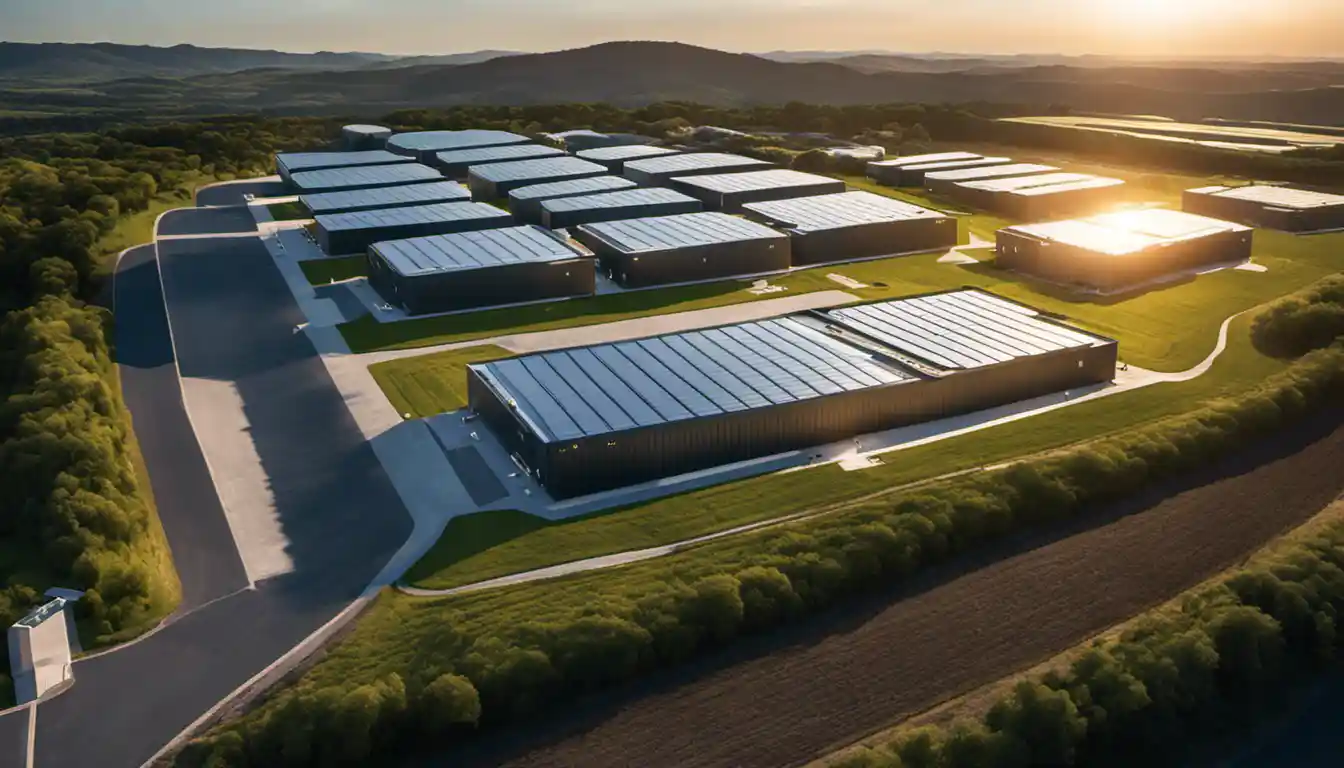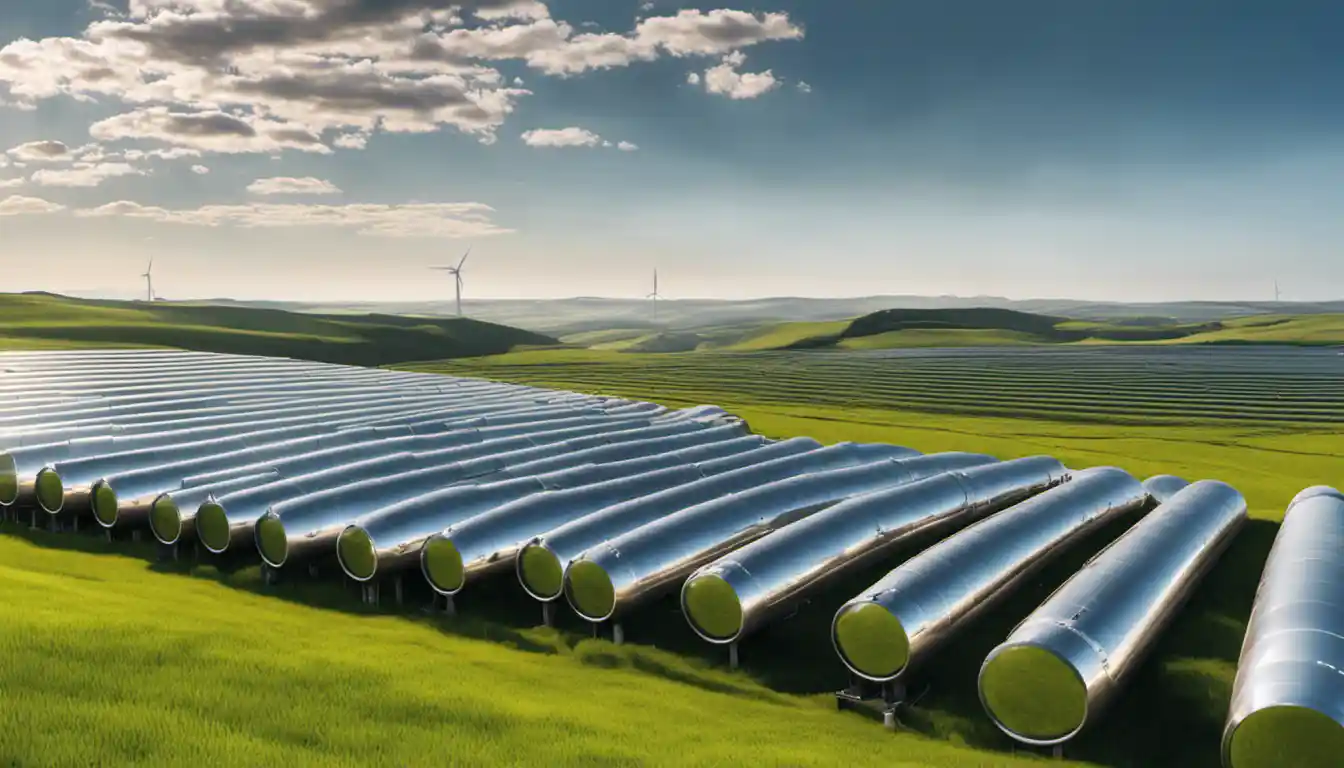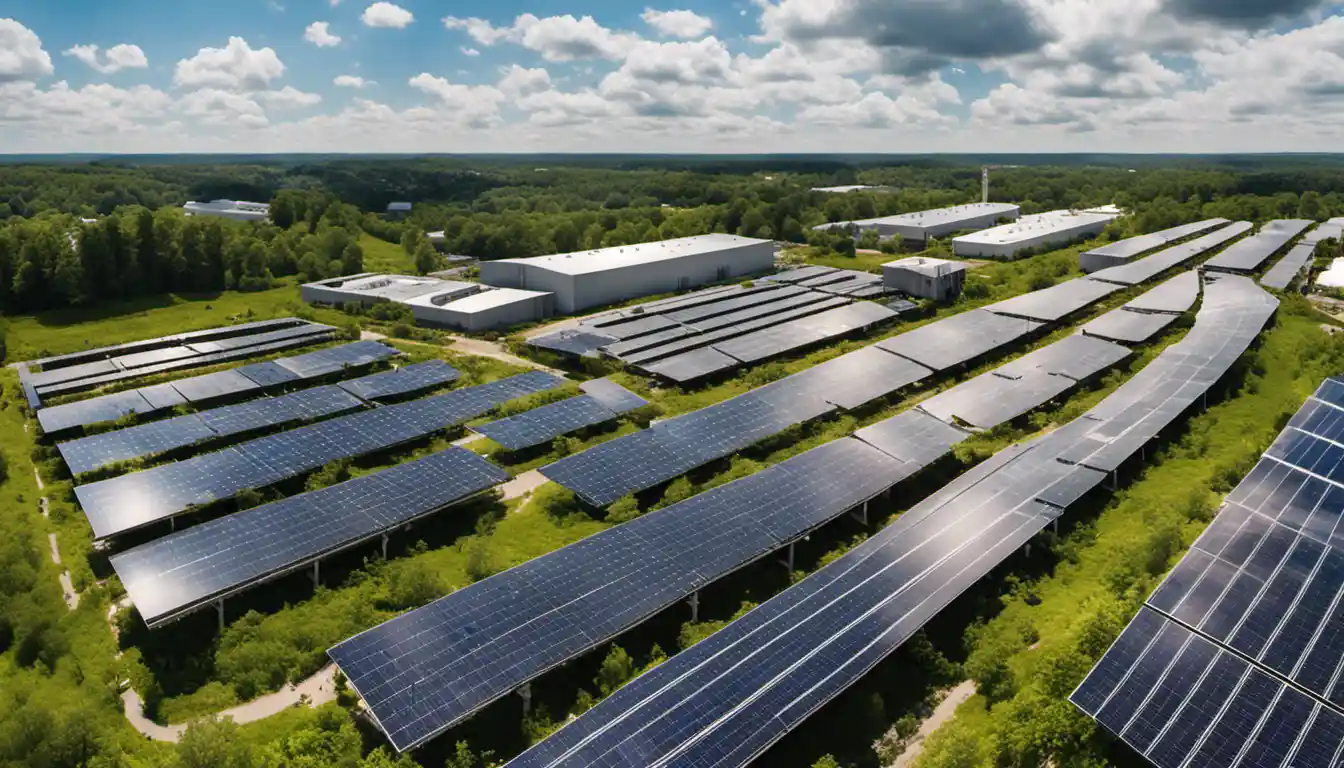Introduction to Commercial Solar Energy
Commercial solar benefits include significant reductions in operating costs due to lower energy bills, as these systems generate their own power. Additionally, businesses can take advantage of tax incentives, rebates, and grants for going green. Also, using solar energy can boost a company’s environmental image, demonstrating social responsibility and sustainability.
Understanding Solar Energy and How It Works
Solar energy is power derived from the sun’s rays, captured through devices like solar panels. These panels contain photovoltaic cells, which translate solar radiation into usable electricity. When sunlight strikes these cells, the energy knocks loose electrons. When connected to an electrical circuit, this movement of electrons generates electricity.
Why Commercial Buildings Should Include Solar Panels in Their Design and Construction
One of the key commercial solar benefits is cost savings. Installing solar panels on commercial buildings can drastically cut energy costs over the long term. This is especially true in geographic locations that receive abundant sunlight year-round. In addition, solar energy systems require minimal maintenance and have a lifespan of 20-30 years, making them a cost-effective investment.
Beyond this, incorporating solar energy solutions in commercial buildings’ design and construction showcases a commitment to sustainability. This not only breaks from traditional reliance on fossil fuels but also positions the business as a conscientious player in tackling environmental concerns.
The Expanding Use of Solar Energy in Commercial Settings
Businesses worldwide are realizing the benefits of solar panels on commercial buildings. From Apple to Walmart, companies have embraced solar power to reduce their carbon footprint. A growing number also sell excess solar energy back to the grid, providing an additional revenue stream.
Storing Solar Energy: Methods and Efficiency
Storing generated solar power is crucial for times when the sun isn’t shining. There are various methods, each with its unique advantages and drawbacks.
Battery Storage

Battery storage systems store excess energy produced during the day. This stored power can be used during the night or on cloudy days. Battery technology has improved significantly over the years, with lithium-ion batteries leading the pack due to their superior energy density and longevity.
Thermal Storage
Thermal storage involves storing excess solar energy as heat. The stored heat can be used to generate electricity during off-peak times. This method isn’t as popular as battery storage for commercial applications but holds promise for industrial settings due to its large-scale storage capability.
Mechanical Storage
Mechanical storage methods are less common but can be highly effective. Here are a few examples:
Flywheel Storage
Flywheel storage involves storing energy in a rapidly spinning wheel. The energy can be retrieved by converting the kinetic energy of the spinning wheel back into electrical energy.
Pumped-Storage Hydropower
Excess solar power is used to pump water to a higher elevation where it’s stored in a reservoir. When power is needed, the stored water is released, falling down and driving a turbine, which generates electricity.
Compressed Air Storage

This method involves storing excess solar energy by using it to compress air. When power is needed, this compressed air can be released to generate electricity by driving a turbine.
Key Benefits of Solar Energy for Commercial Buildings
There are myriad commercial solar benefits for businesses of all sizes.
Savings and Reduced Operational Costs
Solar energy can significantly lower a business’s energy costs. After the initial installation costs, solar energy is virtually free.
Increases in Property Value
Buildings outfitted with solar panels often see increases in property value. This is due to both energy efficiency benefits and buyers’ increasing demand for green, sustainable buildings.
Access to Tax Incentives and Breaks
Businesses that install solar energy systems can often take advantage of significant tax incentives and grants.
Environmental Impact and Brand Reputation

Using solar energy can drastically reduce a company’s carbon footprint. This not only benefits the environment but also improves the company’s image with environmentally-conscious consumers and partners.
Security Against Power Outages
Having a solar power system with battery backup can ensure that your business stays operational in case of power outages.
Low Maintenance Costs
Solar panels involve minimal maintenance. Generally, an annual inspection is enough to keep them working efficiently for decades.
Harnessing Solar Energy to Meet ESG Goals
Environmental, Social, Governance (ESG) goals have become increasingly important for businesses. Switching to solar power is a powerful way to contribute to these goals, as it significantly reduces greenhouse gas emissions.
Bridging the Gap: Energy Resilience and Control with Commercial Solar Systems
Having control over your energy source is another one of the key commercial solar benefits. Instead of relying on an external grid, businesses can ensure a stable supply of power.
Conclusion and Final Thoughts
As I reflect on my 20 years in the solar energy field, I am struck by the significant progress we have made and the untapped potential of solar power. Commercial solar benefits are manifold, ranging from substantial cost savings to environmental footprint reduction. It’s not a question of if solar energy will be the future of commercial buildings, but when.



